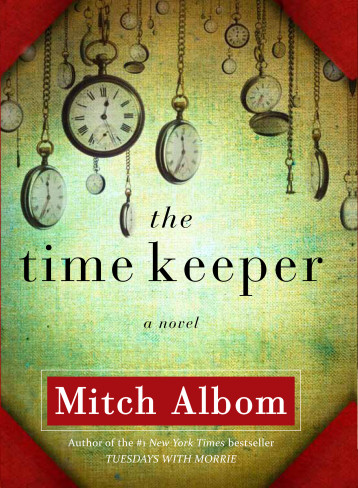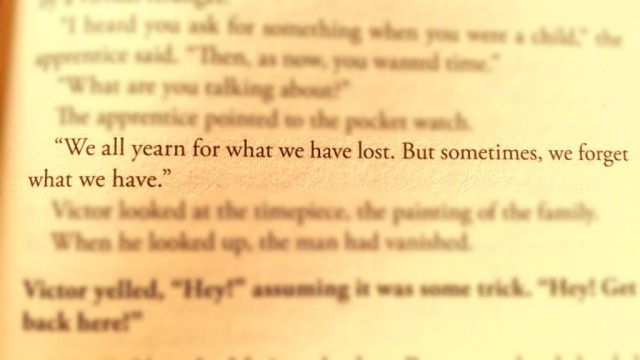By Riya Kuruvilla
Hate or love it, you’ve still got to follow time. We are obsessed with the idea of “measuring the hour”, of trying to prolong the amount of time we have, or to cut it short. In short, by measuring time we try dominate it, like we try to control the world around us and fail quite miserably in the long run. After our complex attempts at measuring it, we beg more of it to sleep, for our projects, for more to spend with our loved ones. We beg lesser by minutes or hours our lectures, for red-lights, for metro-rides or of some very intolerable people. We humans are an unsatisfied lot. This statement is guaranteed to bag a title at the biggest understatement of the year awards.
We need an intervention, and Mitch Albom provides precisely that as he confronts our attempts at the domination of time in “The Time Keeper” through the intertwined stories of three people. They are Dor, the first man who is able to measure time, Sarah Lemon who wants to cut short the time she already has, and Victor, who wants to prolong the amount of time he has already been given. Dor had two things of utmost importance in his life – his beloved wife and his endeavour of accurately measuring time. He loses the love of his life, loses time with her as he tries to measure the very thing. He loses one of his two devotions in pursuit of the other. This heart-breaking irony is very much present in the life of Sarah Lemon, a teenager, who unloved, looks for love in the wrong places and as result of this ill-fated desperate attempt, aims to do away with her life. Victor is no different, after living a long and successful life; he has not had enough and puts his assets into finding a way to live forever despite his cancer.
There is an inevitability that Albom attributes to time and focuses upon during the entire course of this book. Albom is as touching as always, hits that precise note, hidden under layers of our preoccupied minds to pull on the strings of each and every individual reader’s heart. His captivating manner of weaving stories has you lost in his world of wild possibilities. His narrative style is mythical of sorts, as he explains the origin of measured time around the same period the tower of Babel was actually being built, and in a very charming manner centres that magical, miraculous happening that is central to the plot of the story (as is in his other novels such as “The First Phone Call from Heaven”) in this tower. God initially confines Dor in a cave as the Time keeper to punish him and then sends him to the future, our present to reverse the wrong he has done in ‘inventing time’ – how he does this is for me to know with a satisfied smirk upon my lips, and for you to find out.
The Time Keeper is a lesson on time. It asks us how we value the time that we are given, it teaches us to live in the present and not in the future or in the past. Albom endeavours to explore what the meaning of time is, something that continues to surpass countless lives and deaths. Time and Tide wait for none, despite our efforts at subduing it through our contraptions of clocks and related machines. While some questions can never be completely answered, one thing is clear, we must use our time wisely. The sands of time may be running out of our hands, but preserving some grains aren’t as hard as we make it out to be.






































